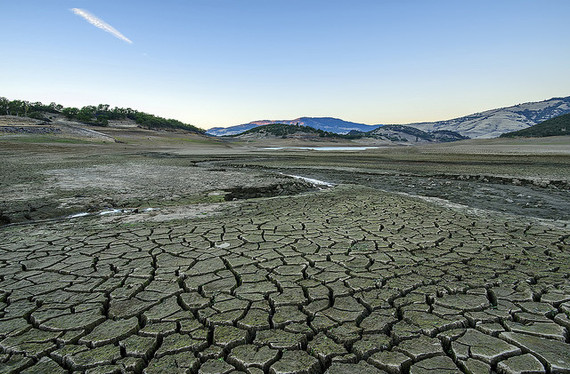
The world continues to grieve those lost in the recent tragic attacks in Paris. The City of Light has been a beacon of freedom, art and human progress for centuries. Terrorists tried to undermine those values, but those values prevail. And now Paris prepares to welcome the international community in a truly forward-looking endeavor: taking essential actions to protect future generations from climate change.
More than ever, Paris is the right place to gather to accelerate clean energy, justice, and resilience and to enable the world's people to achieve a sustainable future.
The Paris climate talks have already inspired unprecedented unity and action. Nearly every nation has committed to reducing their carbon pollution. And hundreds of cities and corporations have made their own climate pledges. It's inspiring and energizing. But we can't stop there. To tackle the full force of climate change, we must stay on the move.
The road to climate stability doesn't end in Paris; it must continue into the years ahead. That's why the agreement forged at the talks must clearly map out the next steps in the journey.
I am confident this is possible, because I've seen how far we've come. I attended the climate talks in Copenhagen in 2009, and back then, national governments waited until days before to submit climate plans, and the U.S. based its pledge on a proposed bill that would fail in the Senate. Now our country has finalized the Clean Power Plan, and states are already preparing to meet the new limits on carbon pollution from power plants. Despite efforts in Congress to undermine this program, President Obama will use his veto authority, and we will continue to press forward toward essential carbon reductions.
In Copenhagen, there was also sharp divide between the developed and developing nations over who should take responsibility for cleaning up carbon pollution and when. Now it's understood that climate change spares no one and all nations must act to address it. The U.S. and China have helped lead the way by making joint agreements to cut carbon pollution.
The global community has taken important steps since the Copenhagen conference, but climate change progresses at a relentless pace. Three of the hottest years on record have occurred since those climate talks, and 2015 is expected to top them all. Millions of people have been displaced by drought, flooding, heat and security conflicts intensified by extreme weather.
Countries are starting to rise to the challenge, but we can't afford to let momentum flag once the delegates return from Paris and the public conversation moves on. We need to make constant forward motion a central part of the Paris climate agreement. We need to remain unified in the common goal of addressing this unprecedented global challenge.
Here are three elements that are crucial to continued commitment and progress.
1) Ambition: Strengthen Carbon Reduction Targets Every Five Years
About 170 countries--representing more than 90 percent of global carbon emissions--have committed to cleaning up their carbon pollution. These pledges would bring the planet's warming down to 2.7 degrees Celsius, but scientists say we must hold steady at 2 degrees of warming if we want to stave off dire impacts on food security and sea level rise. To fill the gap, the Paris agreement should require countries to tighten their carbon reductions targets every five years. Many nations support this approach, including the U.S. and China, but there is some disagreement on when it should start. Given how fast clean energy technologies are spreading, we must start the clock as soon as possible.
2) Commitment: Monitor and Report on Nations' Progress
Countries have made impressive pledges to cut carbon pollution, but we have to ensure these promises become actions. The Paris agreement must include transparent systems for monitoring and reporting on each nation's progress. These systems should be included in the legally binding portion of the agreement.
3) Investment: Finance the Transition to Clean Energy and Resiliency
Though every nation must do its part to address climate change, developed nations are responsible for the lion's share of carbon pollution in the atmosphere, and they have an obligation to help developing nations transition to a sustainable future. At the Copenhagen talks, countries agreed to launch the Green Climate Fund to mobilize public and private funding with the goal of raising $100 billion by 2020; we have reached just over $60 billion. The Paris agreement must deliver more funds and ensure the money is spent on projects that truly make clean energy affordable for developing nations and make communities more resilient in the face of extreme weather.
Onward to Paris: a step on the pathway to a sustainable future for all.
Photo credit: Al Case

